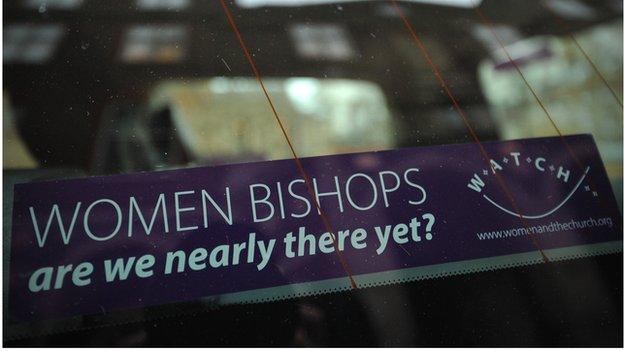MPs back law fast-tracking female bishops into Lords
- Published
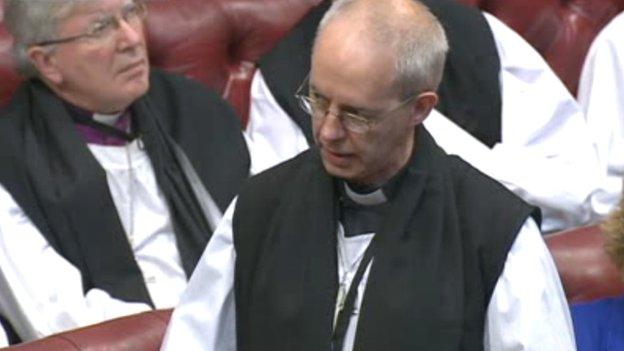
The Archbishop of Canterbury, the Right Reverend Justin Welby, is among 26 clergy to sit in the House of Lords
MPs have approved legislation to help fast-track female bishops into the House of Lords over the next decade.
The proposed bill, external will ensure senior female bishops will be first in line to succeed current "Lords Spiritual" members of Parliament when they retire.
At the moment, positions are filled, external on the basis of seniority in dioceses.
The law, which must be backed by peers, was passed quickly on Monday afternoon just weeks after the Church of England appointed its first female bishop.
Reverend Libby Lane was named as the Bishop of Stockport in December, the first woman to hold such a post in the Church of England - five months after the Church of England voted to allow female bishops.
However, Mrs Lane will not be eligible to enter the Lords as she is not one of the Church's diocesan bishops. The post she is taking up is a junior, suffragan appointment within the Diocese of Chester.
There are 26 Lords Spiritual members of the Upper House, all of whom are men.
Length of service
Five of those - the Archbishop of Canterbury, the Archbishop of York and the Bishops of London, Winchester and Durham - are ex-officio members while the other 21 places are occupied by those English diocesan bishops that have served the longest.
The Lords Spiritual Women Bill would give any woman appointed a diocesan bishop in England during the next decade priority in terms of succeeding those among the current 21 who retire during that period.
Bishops cease to be peers at the age of 70, when they are required to step down from their sees. The Bishop of Leicester will be the first among existing member of the House of Lords to reach this milestone in July.
The proposed new law favouring female diocesan bishops in terms of future membership would take effect soon after May's general election and apply for a period of 10 years.
The legislation states that if there are two or more eligible female bishops in place when a vacancy arises, it would go to the one who has served the longest.
The bill went through all its stages in the House of Commons in under three hours, with Archbishop of Canterbury Justin Welby watching the initial proceedings from a gallery overlooking the chamber.
'Simple aim'
Government minister Sam Gyimah said it was a "modest but important" change to the law.
"It has one simple aim which is to bring female bishops amongst the Lords Spiritual sooner rather than later. Given how long women have waited to become bishops that is right," he said.
"The House of Lords should not have to wait for an unknowable period of time before its Lords Spiritual benches reflect the new make-up of the episcopate."
Tony Baldry, who as First Church Estates Commissioner speaks on behalf of the Church of England in the House of Commons, said he was "very pleased" with the speed at which the Commons had passed the law.
The move is strongly backed by the Church of England, which has said it "reflects a desire both in and outside the Church to see women represented in those places where the Church exercises its national public ministry".
The provisions in the bill will not apply to the sees of Canterbury, York, London, Winchester and Durham. Any archbishop or bishop of these dioceses would automatically enter the House of Lords.
Former archbishops have, by tradition, been appointed life peers after retiring.
- Published17 December 2014
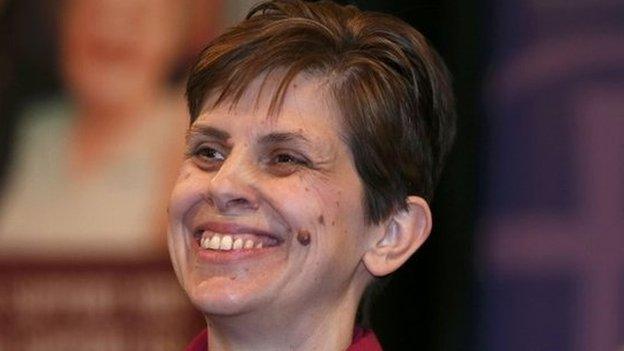
- Published17 December 2014
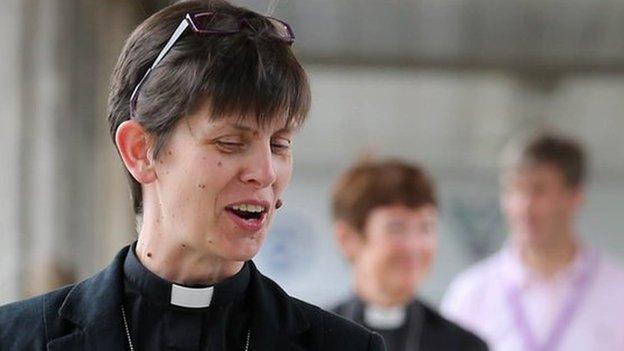
- Published14 October 2014
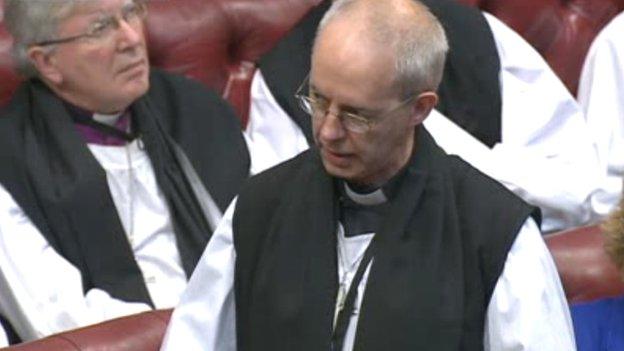
- Published14 July 2014
